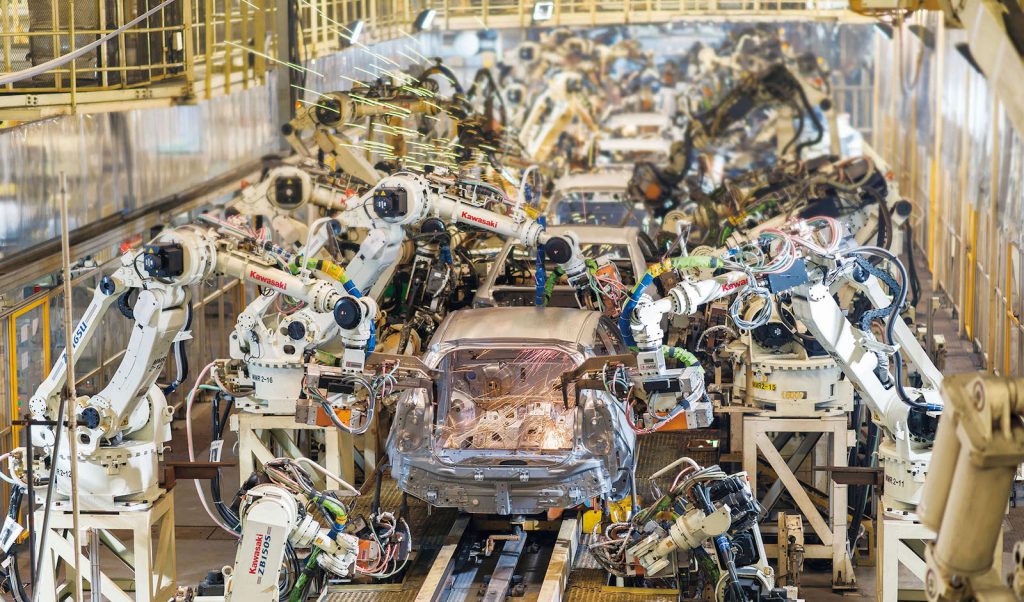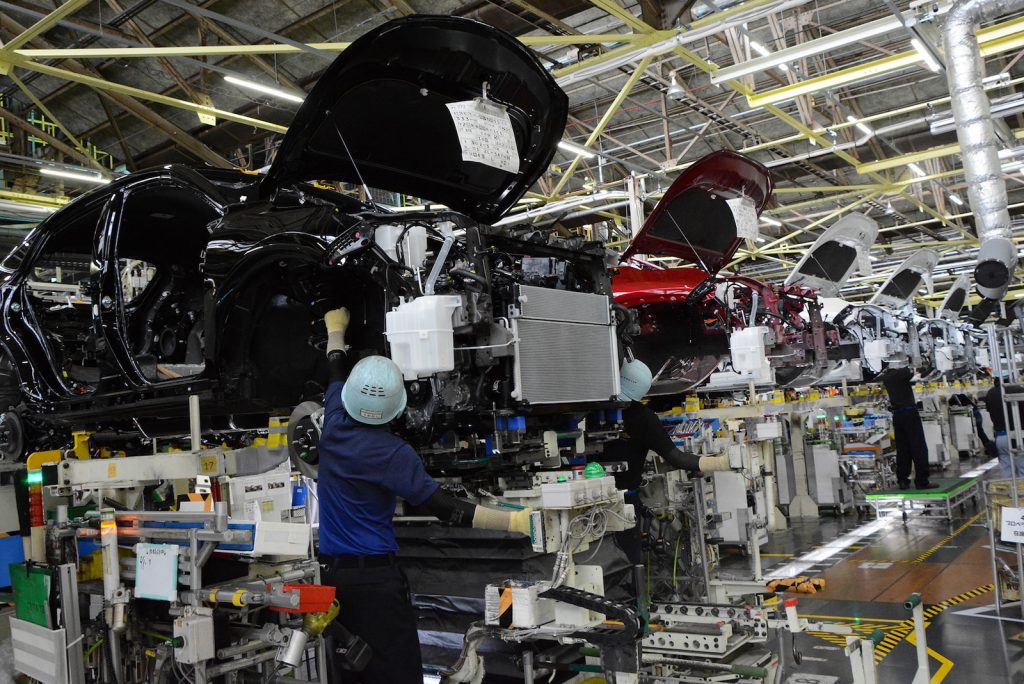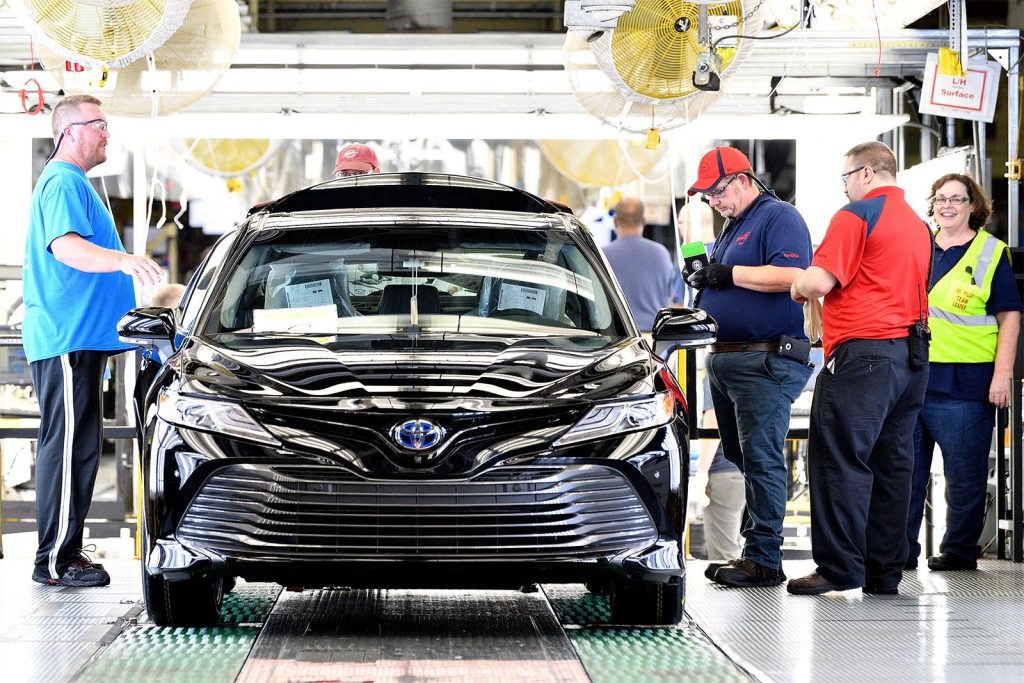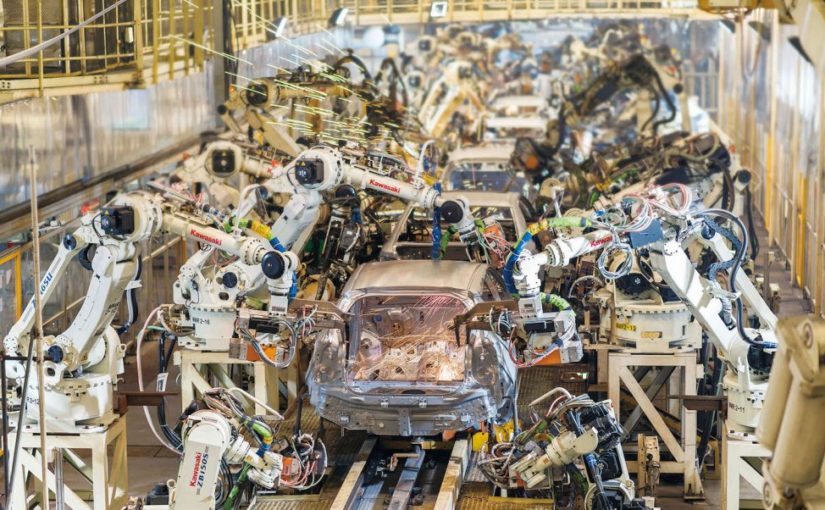Ford’s been hardest hit by the semiconductor shortage, but recent events show that no company can escape the impact.

Toyota announced temporarily shut downs of 27 out of 28 production lines at 14 plants around the world due to the problem. Volkswagen officials said they’re mulling ways to avoid a similar problem, saying production levels would fall, but no plant closures were announced. Unsurprisingly, Ford is closing plants this weekend due to the problem.
The Japanese automaker’s announcement came as a bit of a surprise because of its scale: 40% of all its global capacity will be down for parts of September. The company will lose about 360,000 vehicles due to the maneuver. It covers a variety of the maker’s portfolio: RAV4, Corolla, Camry, Prius and even the company’s luxury unit’s Lexus RX.
Not surprisingly, the world’s second-most valuable automaker saw its stock take a hit today, falling 4.7% on the news. Some of that drop comes because the company’s forecast for annual operating profit of $22.7 billion didn’t change, but it’s already lower than analysts are predicting.

Avoiding the problem
Toyota managed to steer clear of the issue because it had presciently stockpiled semiconductor chips, according to multiple media reports. The strategy came about as a response to the massive 2011 earthquake that hit Japan, forcing its shutdown for weeks.
Additionally, the Fukishima nuclear plant disaster cemented the need, in the eyes of Toyota’s top leaders, to ensure it had a healthy backstop of chips.

As a result, the automaker confirmed its goal of building 9.3 million vehicles globally for the fiscal year ending March 2022. It also still plans to sell 8.7 million of those vehicles. The total would make it the second biggest automaker behind Volkswagen.
Chips not the only issue
Semiconductors are problematic, but production of vehicles — as well as additional chips — is being hampered as the latest wave of COVID-19 hitting the company’s facilities and its suppliers in Southeast Asia very hard.
The issue caused Toyota to previously stop assembly lines at some Japanese factories between late July and early August, including its Tahara plant, due to a surge in infections in Vietnam which had constrained the supply of parts, according to Nikkei, the Japanese news service.
The company’s also been forced to deal with similar issues at a plant in Guangzhou, China, and three others in Thailand.
Got a traffic ticket? If you’re looking to mask your ticket through a DMV licensed California traffic school online check out Fast Course 4 Less. They have a money back and low price guarantee with courses available 24/7 starting at $19.95!